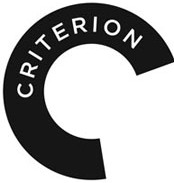AS AMERICAN AS APPLE PIE AND PUNK ROCK
 In a dreary Michigan suburb, aggro punk rocker Simon (Kyle Gallner) finds himself on the run after a bout of arson and a close call with the police. A chance encounter with eccentric and socially awkward Patty (Emily Skeggs) provides him a place to hide from the law, though she fails to realize that her new friend is the anonymous lead singer of her favourite band. The pair embark on a series of misadventures and while their radically different personalities make them an unlikely duo, Simon and Patty realize that they have a lot more in common than first expected.
In a dreary Michigan suburb, aggro punk rocker Simon (Kyle Gallner) finds himself on the run after a bout of arson and a close call with the police. A chance encounter with eccentric and socially awkward Patty (Emily Skeggs) provides him a place to hide from the law, though she fails to realize that her new friend is the anonymous lead singer of her favourite band. The pair embark on a series of misadventures and while their radically different personalities make them an unlikely duo, Simon and Patty realize that they have a lot more in common than first expected.
Dinner in America is an ode to the ’90s Nebraska punk-scene of writer-director Adam Carter Rehmeier and a hilarious underdog love story boosted by a generous helping of absurdity and some instantly quotable dialogue. Set to the beat of brilliant original songs and perfectly casting Skeggs and Gallner as a suburban Bonnie and Clyde, Dinner in America is a wild and empowering ride through the places and people of Middle America — in all their peculiar forms.
Special Edition Contents:
- High Definition Blu-ray (1080p) presentation
- 5.1 DTS-HD Master Audio and Uncompressed Stereo PCM
- Optional English subtitles for the deaf and hard of hearing
- Feature-length audio commentary with director Adam Carter Rehmeier and producer Ross Putman
- One Night Only, new interview on the film’s music with Rehmeier, Emily Skeggs, Kyle Gallner, and composer John Swihart
- Freedom from Want, new interviews with supporting cast members Lea Thompson, Mary Lynn Rajskub, Pat Healy, and Griffin Gluck
- Straight Shooting, new interview with cinematographer Jean-Philippe Bernier
- Apocalypse Yow, new interview with musician and actor David Yow
- Detroit Punk City, stories from cast and crew on the shoot
- Outtakes and deleted scenes
- Original theatrical trailer
- Soundtrack CD including a remix of “Watermelon” by Bernier
- Reversible sleeve featuring two artwork choices
FIRST PRESSING ONLY: Illustrated collector’s booklet featuring new writing on the film by producer-director Ant Timpson
